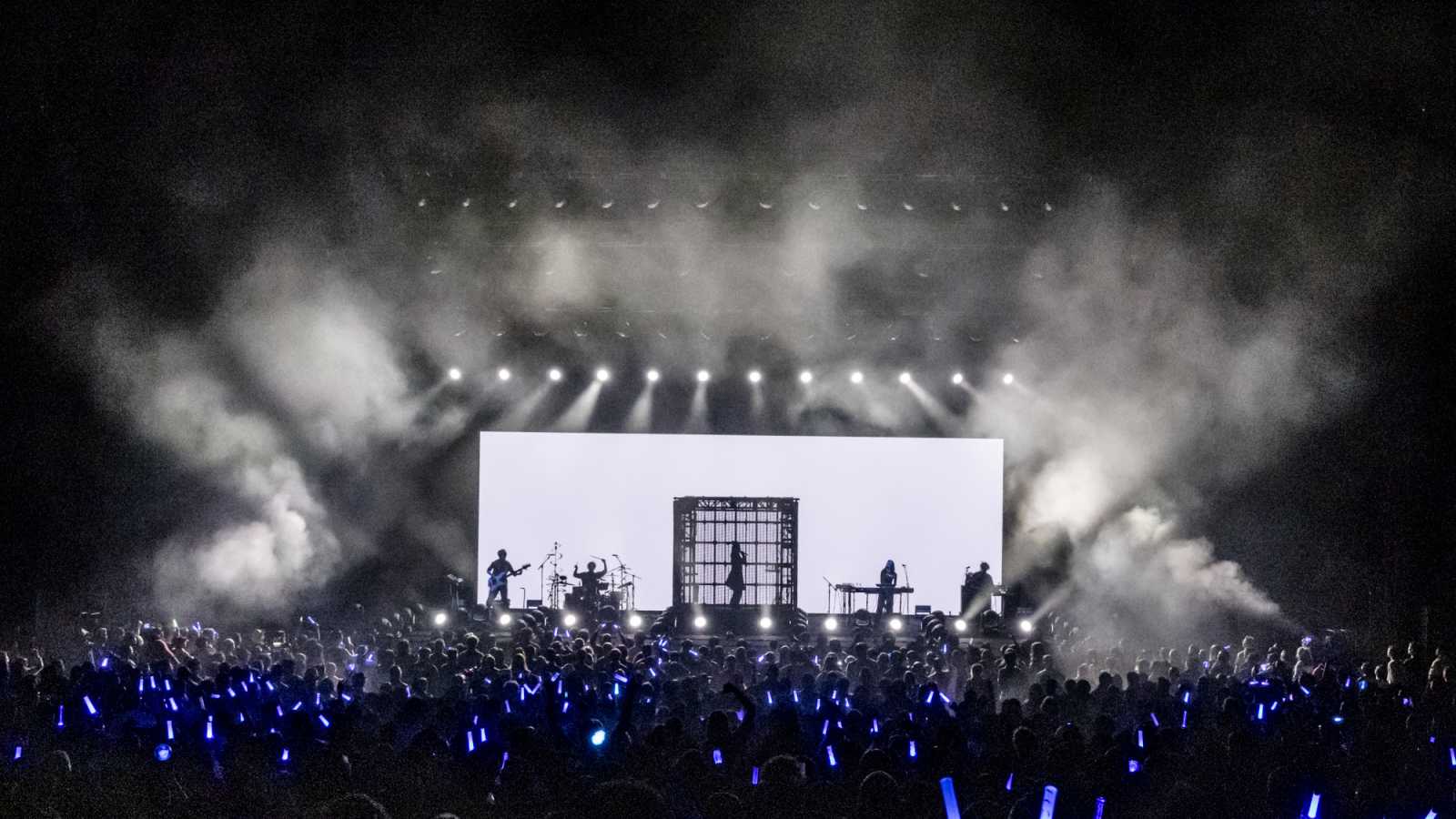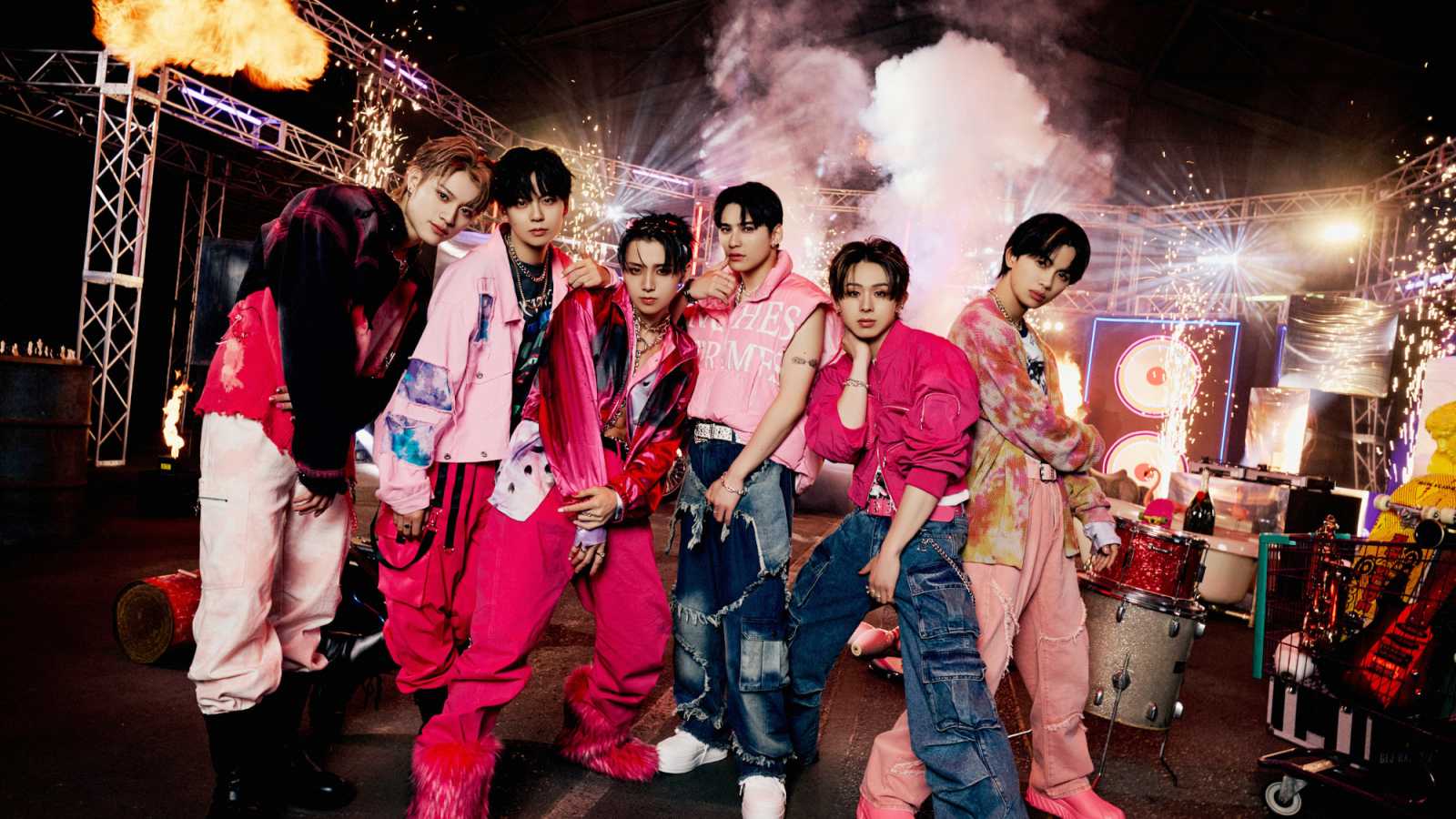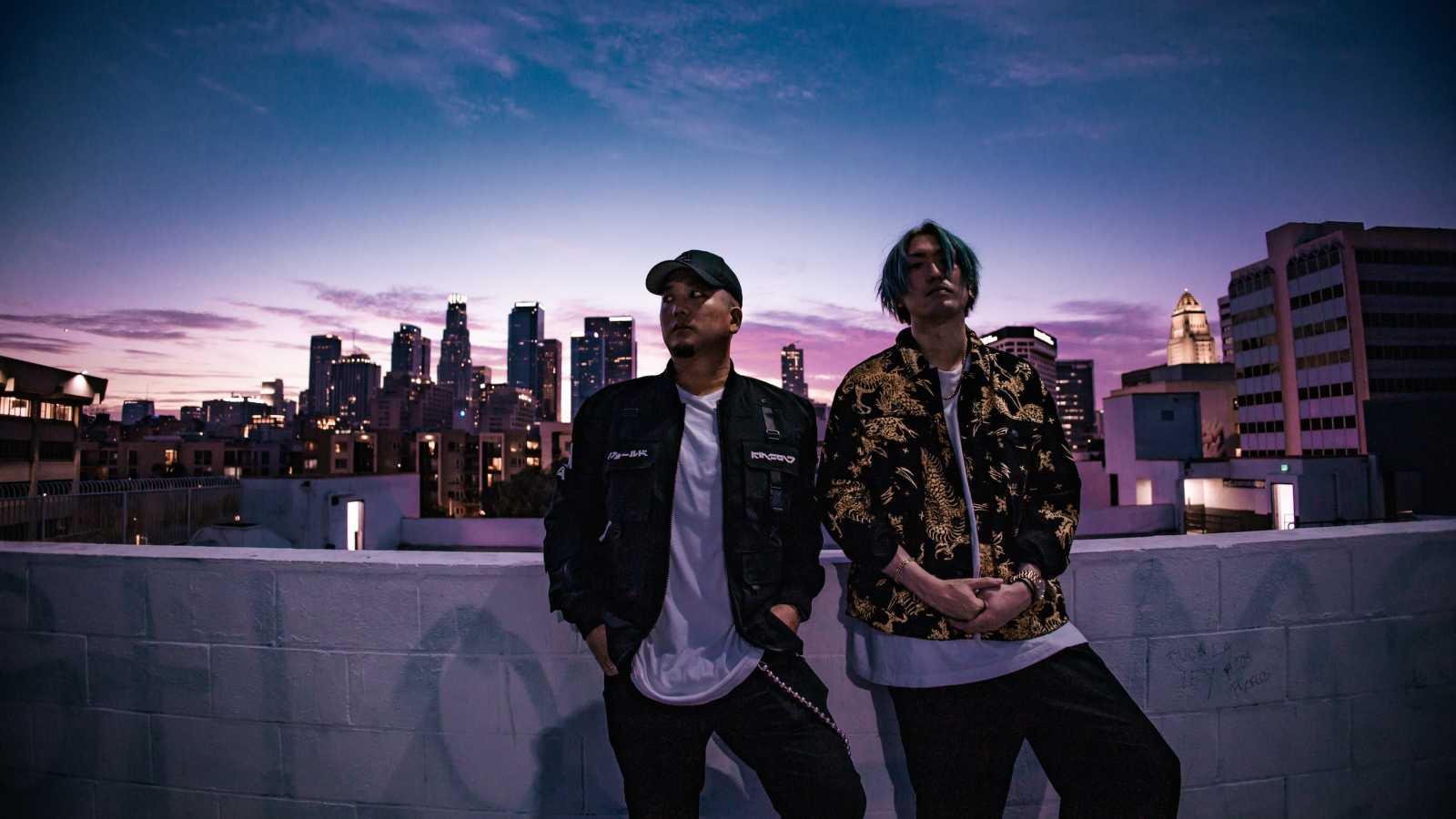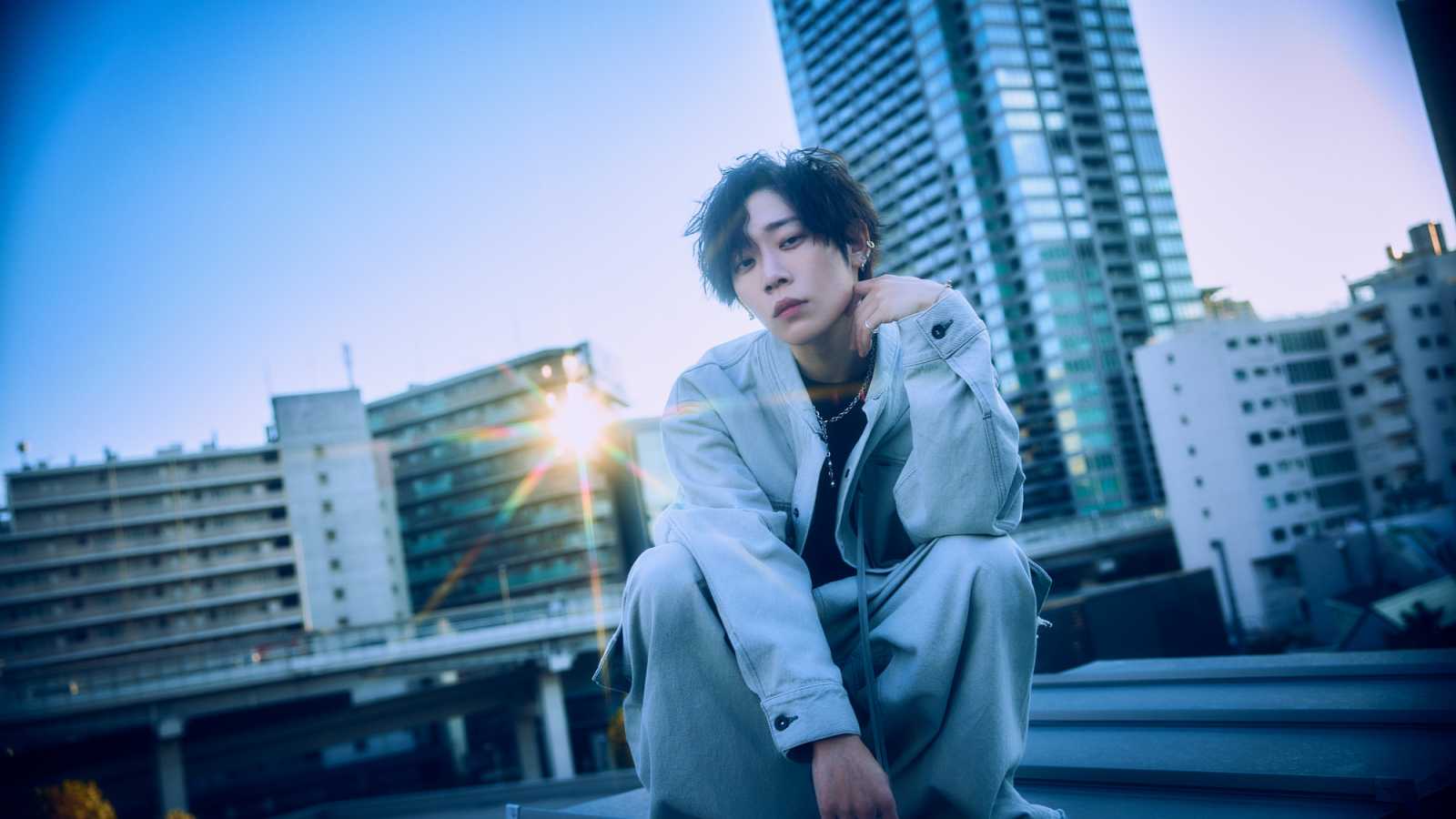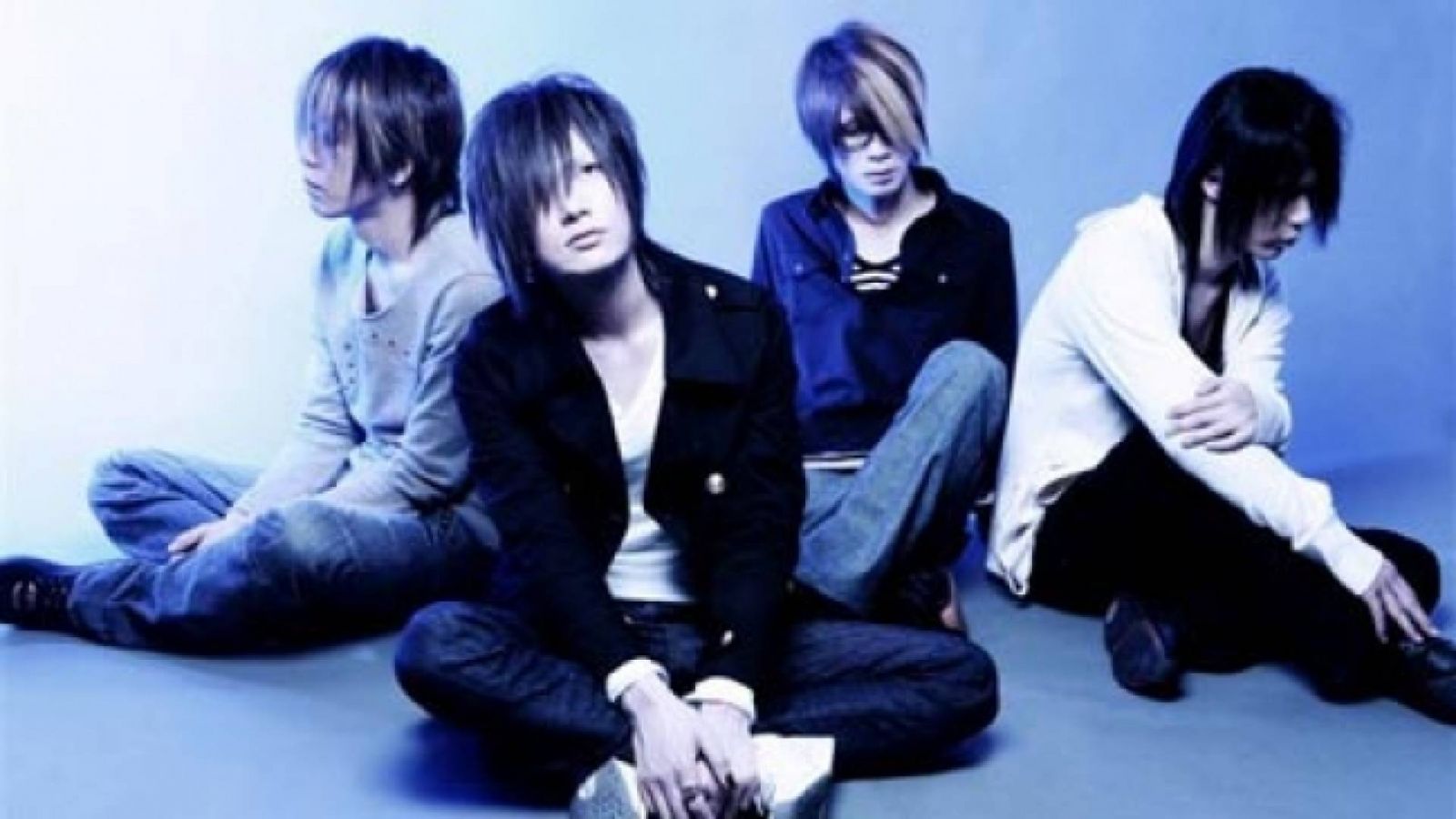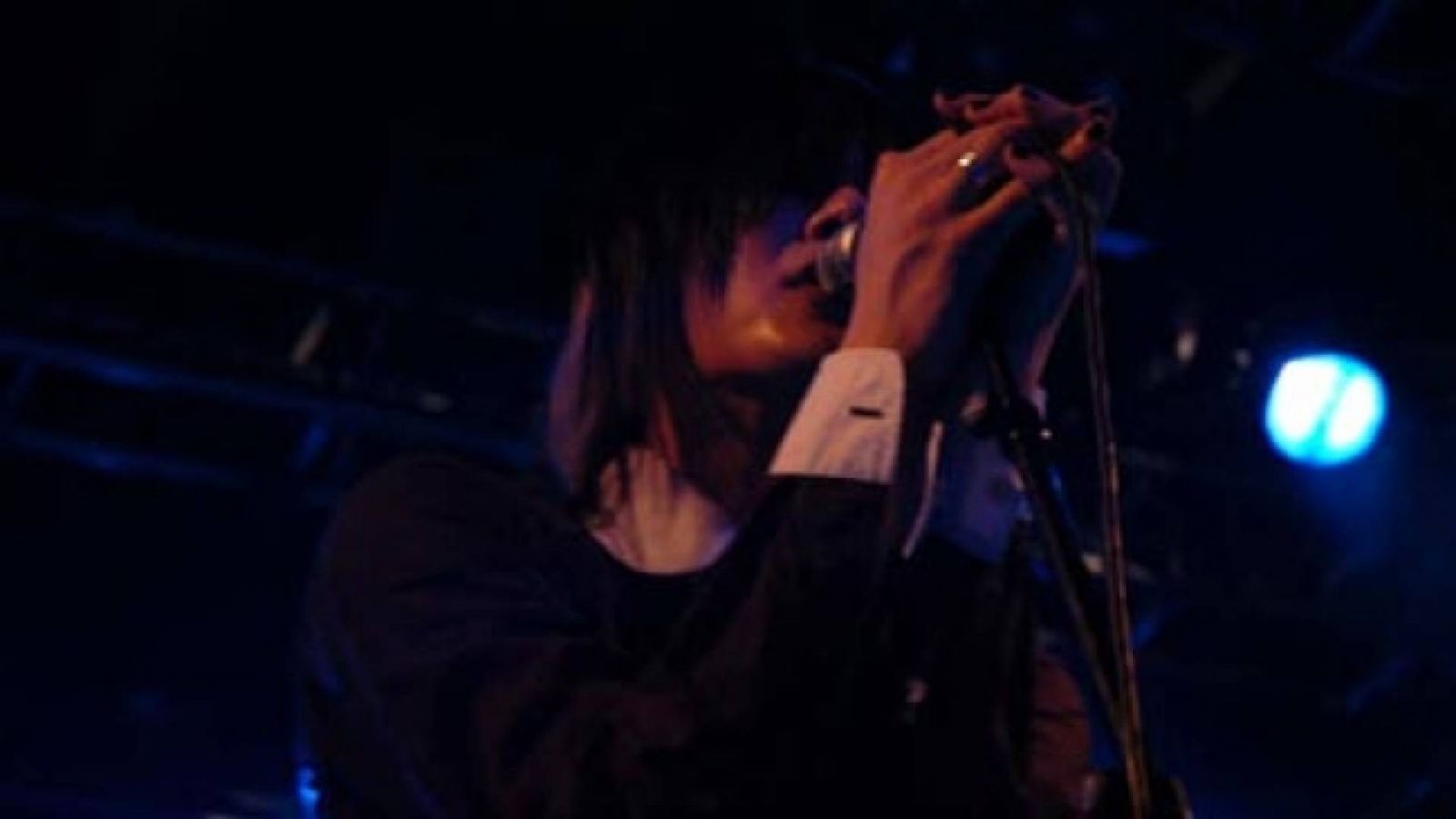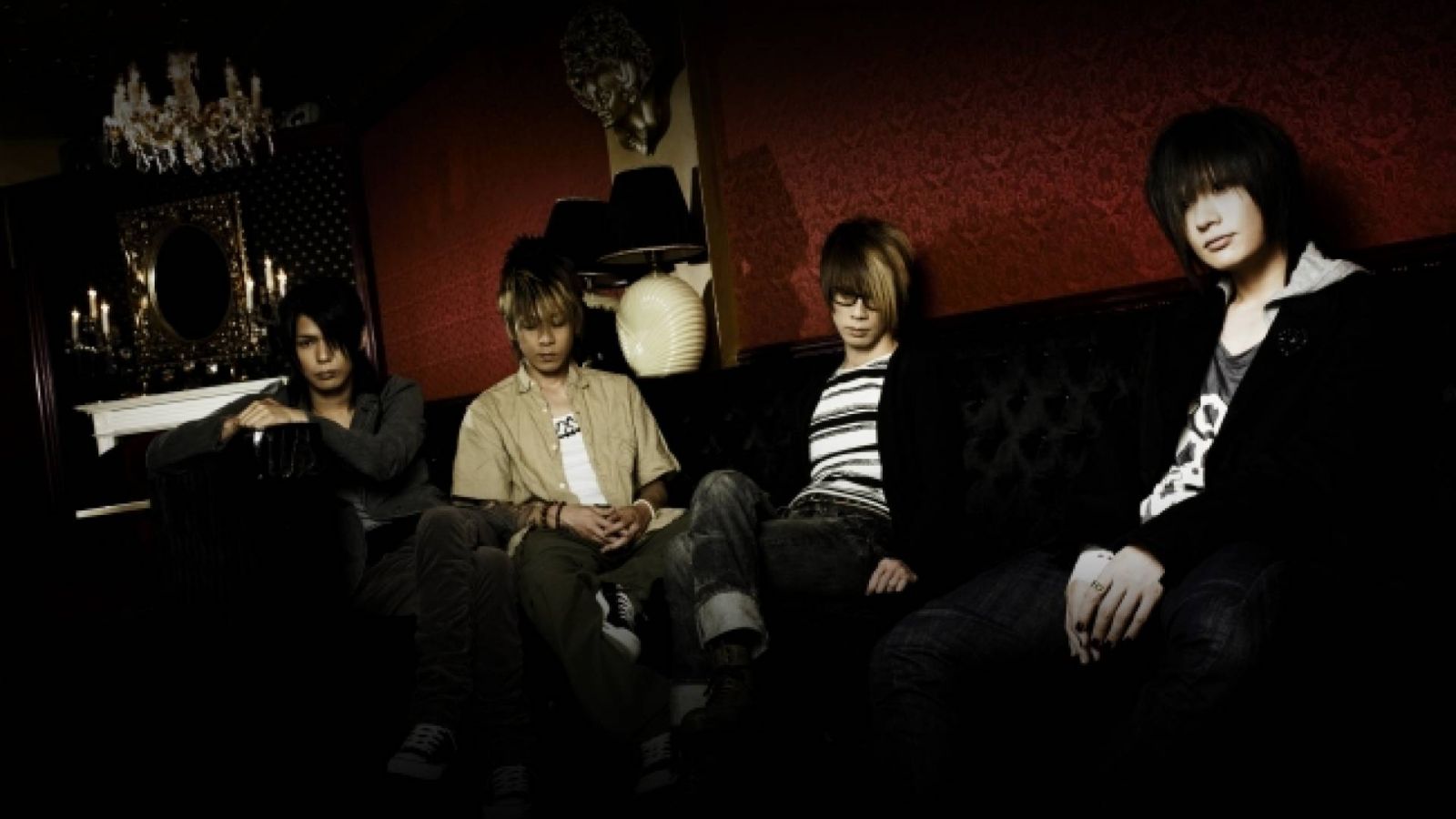Exclusive interview with Ryutaro and Tadashi in Japan just a little before the start of their World Tour.
Plastic Tree interview (2006.4.5)
In Tokyo, where the rain was falling from a dull gray sky, I changed trains in Meguro, got off somewhere else and walked through a residential area. Plastic Tree, who had already started their domestic spring tour, had done 8 lives and returned to Tokyo to record their new album. I was invited to their producers home and their manager led me to the living room, where Ryutarou and Tadashi were sitting and relaxing at the low table with its potato chips and papers.
First of all, please introduce yourselves.
Ryutarou: Im Ryutarou Arimura, the vocalist of Plastic Tree.
Tadashi: Im Tadashi Hasegawa, the bassist. Its nice to meet you.
In December 1993, Ryutarou Arimura and Tadashi Hasegawa created Plastic Tree. How did you meet each other?
Tadashi: Before, we played in different bands from each other, but in the same area. That was in Chiba.
Ah, I know your Chiba song. (The title of the song is [Chiba-shi, Wakaba-ku, 6 ji 30 pun])
Tadashi: Yes. In Chiba-shi, we played separately, but we mixed well with each other at that time. Both our bands broke up or became inactive at around the same time, so we decided to play together.
Ryutarou: Tadashi was in a band, and I wandered from band to band and also did solo work, working part-time jobs in live houses and searching for a person who could make songs that I wanted to sing. But it was hard to find such a person who I wanted to play together with, but finally I met Tadashi. I was shocked by the music of his former band. It was so marvelous, then I asked Who made this song? and he answered I made it.. I talked with him personally, and found we had a lot in common with favorite music and movies, and then I thought I want to play with him. at that time.
What kind of music did you play at that time? Was it different from your present style?
Ryutarou: Yes, it was different.
Tadashi: When we met each other, I would rather say, Ryutarou played in a rockn roll band.
Really!? Thats surprising!
Ryutarou: Uhhhnnn
.how can I put it, something like Southern rock, or old rock, or psychedelic rock.
Tadashi: A little like the music of 70s.
You played a cover of [TURN! TURN! TURN!] by Pete Seeger (Japanese title is [Inori].). Did you play this kind of music?
Ryutarou: It was a little bit different from that.
Tadashi: It was more Blues rock.
Ryutarou: I cant say clearly but it seemed thick and mashed.(laugh)
I have an image of Ryutarou playing guitar and singing a song of [Saishu ressha].
Ryutarou: Well, totally different. I didnt play guitar, I was mainly vocals.
Tadashi: There wasnt a category of visual-kei yet. I played in a band which was influenced by early visual-kei bands at that time, such as Buck-Tick and Zi÷kill.
When you named the band Plastic Tree, what did you mean?
Ryutarou: When we had to name our band, Tadashi and I experimented with words. We said Lets put 2 words together!, and Why dont we make a combination of something artificial and something natural., and said a variety of things like steel, and stone, river etc. Finally we said plastic and tree, then we said Its good., and then it was decided.
It sounds beautiful.
Ryutarou: In those days there were many incomprehensible words in the music scene. We didnt want an important meaning in a bands name, and deciding that its better everyone can read our name easily, we made the band name from plain words of artificial and natural things.
The image mixed with nature and art is matches your bands color.
Tadashi: Yes. I think it represents our bands image well.
Which music are you conscious of now? You are influenced by British bands such as Radiohead, Blur, Coldplay and Muse, arent you?
Ryutarou: I like all the bands you said. When I made a band, Brit pop was in its prime, and I used to like bands such as The Smiths and THE CURE, since my former band. We matched well in music talk around that. In addition, I liked American bands too, and I also liked Western music including old bands and popular music.
Did you often listen to Western music rather than Japanese music?
Ryutarou: Not really, but I liked Japanese music as much as Western music. Generally speaking, there are quite a lot of people and bands who wont listen to Western music or who wont listen to Japanese music, but our band doesnt have such a bias. We love both Western and Japanese music. I sometimes talk with Tadashi about Western music and old Japanese folk songs, although there werent many people who I could talk to about this before.
Tadashi: As our prompt basically, we were influenced by THE CURE very much.
Ryutarou: As a band, the influence of THE CURE was pretty big.
Tadashi: Not only their music, but also the presence of the band. We were saying Such a band is great..
Until now, you released 10 albums and 24 singles (25 singles including [Namida Drop] which was released on May 10th.) and you have a 5th hit single [sink] in 1999. Which is the most impressive piece for you?
Tadashi: As for albums, [Puppet Show] (2nd album released in August 1998.) is very impressive for me. In this album, we could establish our musical form as Plastic Tree. We could express ourselves well and balance what we had done before and what we could do at that time and what we wanted to do after that.
Ryutarou: Well, every piece impressed me. If I dare to say, in [Puppet Show] we established ourselves as a band. Now it is spring, so I would say [Harusaki Sentimental] (laugh) My feeling is like this. There are days when I cant get a song out of my head. I dont know why, but I like it. Sometimes it is a masterpiece, sometimes an unknown B track. Depend on songs and days.
The music of Plastic Tree covers various forms, from rock to pop, from slow and melodious songs to hard and heavy songs. Is this a conscious decision when making songs?
Ryutarou: Not so much. Each member likes various music, and I think they absorb it through their own filters, so I hope we can increase such elements. I dont care about genre, but we all are aware of songs that really express what we want to say well during the creation of songs. There is not so much talk about genre.
Does each member make a different pattern of songs?
Tadashi: Yes. Its different. For example, the songs made by Ryutarou often have steady melodies, then our band adds music. Akira makes songs elaborately from the beginning, then adding our bands expression. I make songs however they come to me, and leave the final parts to band members.
How do you make songs? Do you use computers?
Tadashi: Recently I use a computer, but sometimes I make it with guitar first, then complete it in a session.
Do you often make songs together?
Ryutarou: Sometimes we do like that, sometimes we make a rough version on PC and bring them, and sometimes we exchange by PC with each other, it depends. Actually I recorded guitar and vocal on the tape recorder
(Ryutarou points to the tape recorder in front of us.) Yes! Using this tape recorder!(laugh) I did this a lot.
Akiras image is that he makes music on a PC, elaborately! (laugh)
Ryutarou: Yes. Akira makes music using a PC often. But he also uses guitar and records by a tape recorder, and when he makes melodies, he makes a background riff first.
Tadashi: It depends on the song. If its an acoustic song, I make it in such way from the beginning.
Your way of making songs seems wide and broad. In contrast, some bands unify their opinions and show their own color.
Tadashi: We dont do that so much.
After the release of [Parade], your music style seemed to change from a new wave sound to a pop and rock sound. Did you intend that?
Tadashi: Well I think yes and no. I would rather say, it changed accidentally. Members changed at that time. In [Toroimerai], Hiroshi Sasabuchi (who is a present drummer of Plastic Tree) became our bands member.
So you didnt intend to change, but it happened naturally?
Ryutarou: Our band has had a long career, and every time when we make albums, we achieved whatever we wanted to do, and then we were thinking about what we would want to do next. I think there were some ideas that we wanted to search for strong melodies and simple songs more, even though we didnt discuss it in our band. Basically, we do whatever we think is good and want to do.
It seems so natural.
Tadashi: Yes. We are so laid back. I dare to say we changed, Lets try such a song, because we have never done it before., and gave it a go.
Which song do you mean?
Tadashi: Well, for example, songs arranged by a sequencer.
Is it [Cell]?
Tadashi: Yes. From around [Toroimerai], we tried a few new things sometimes. Whats more, we did cover songs.
Ah, yes. How did you get to sing a cover song of [moshimo Piano ga hiketanara](=[If I could play piano]; a hit song sung by Toshiyuki Nishida in 1981.)?
Tadashi: That was an idea coming from staff, saying Its interesting. Why dont you try.. We dared to give it a try.
You sang a very unique song such as [Baka ni nattanoni]. Did you dare to do such a song?
Tadashi: Yes. It also came from staff, saying Why dont you do this? Its interesting, dont you think so? Well, I see. Lets try..
It was not your original character, wasnt it?
Ryutarou: No, it wasnt. Im 100% sure its not our original character!(laugh) Well, I think we wanted to try various things in a band. We are a band that doesnt set a limit like this, but we have done various things, and found that we do have limits. We dont necessarily try to break them, but we dont look and try to do what is impossible, I think.
I have an impression that Ryutarous lyrics show his unique inner world, delicate, fragile, tender, pure and unstable like a child. When do your lyrics come to your mind?
Ryutarou: Recently its hard to say. But I used to write them down in my notebook. I have clear images in my head which I want to write, and I arrange it into songs which members bring to me or I make, based on a theme I want to do. I cant say when, but when I write I write a lot, when I dont, I dont write at all. Doesnt matter
.if Im taking a bath (laugh), taking a train, in a car, before I sleep. I pull the words together and put them into the music, changing from the words to the lyrics, which I often do in bed.(laugh)
Why did you decide to make the project [Mike-neko Byouin(=tortoise-shell cat hospital)](A session band which Ryutarou, Tadashi, Ao of cali≠gari, Ya-su of Ya-foo joined, they did a live of only cover songs and a special photo shoot for FOOLS MATE.)? What was the concept? Will you do it again?
Ryutarou: Well, that was
(laugh), Tadashi and I happened to play as a folk unit [Mikeneko] once in an event. As I said, I really like dark folk music such as underground folk, and nobody else liked it nor played with me (laugh), so I said Wouldnt it be interesting playing with Tadashi?. In a fan club event, Akira did something else, and Tadashi and I played as a folk unit, saying How about playing disguised as women? and we did it in womans clothes. Then the project started.
Tadashi: After that, we happened to be invited to a live like a Halloween party by our acquaintance.
Ryutarou: But other members played in a band. So we said Its lonely to play only by ourselves., and Why dont you make a band temporarily?, then we played with our acquaintances. It was Halloween and I heard other members wore Halloween costumes, so I thought it wasnt interesting to wear the same costume as others, then we talked Ill bring my pajama from my home., Ill coil a bandage around my body., We are talking about a hospital, so I need a nurse cloth., and it escalated more. Finally it became bloody.(laugh)
As a musician, are you picky about your instrument or vocals?
Ryutarou: If I think I can sing more smoothly by playing the guitar by myself, I would do both singing and playing guitar. Basically its more important for me to sing songs, so I cant say more about playing guitar. As for vocals, I think they are heard before the music itself. I think a voice is living entity, so I dont use artificial techniques very much now. The most important thing is whether I can convey my various emotions and heart to the audience, so I dont care about rhythm and pitch very much.
Tadashi: In my case, I started playing bass because I wanted to play in a band, so I think its OK as long as I can play my bass part in a band. As for the sound and style of bass, I only worry if I can play what the band wants. Even if I cant play various styles so much, I have a strong confidence in Plastic Tree, so much so that I know I have to do it and do it well!
So your bass style is left up to the song, isnt it?
Tadashi: Yes. I would rather say, I started playing bass not because I wanted to play bass but also I wanted to play in a band.
Whats your hobby except music?
Ryutarou: Unfortunately, I dont have one
(laugh)
You are fortunate, because you can be happy as long as you are doing music.
Ryutarou:
Im not sure whether I can say yes
..(laugh). Except music, I dont have hobbies,
well, I like to see movies
.but its too normal.
What movies do you see?
Ryutarou: Well, I watch any movies normally, from Hollywood to underground. But I dont remember.(laugh) I remember the pictures, but I dont remember the main stories or titles at all. And its not a hobby yet, but I like traveling.
So you like your live tours, dont you?
Ryutarou: Uhnnnnn, in a tour, I have to work very hard for the lives. But during a tour, I go to many places alone by myself. So I want traveling to be my hobby from now on.(laugh) I want to see the 100 World Heritage Sites before I die!
Tadashi: I dont have any hobbies except music, and whenever I have time, I go to CD shops and buy various CDs.
So you like listening to music. Do you listen to any kind of music?
Tadashi: Yes, I do. But I think I would be partial to music.
Is it British music as you said?
Tadashi: Well, sometimes British, sometimes Punk, and sometimes Alternative, Im trying to widen it.
Plastic Tree spring tour 2006 [Kuroi Sokudo no Shikakkei] has already started, and you did 8 lives since then. How do you feel?
Tadashi: To be honest, I feel very good. At first I worried a little bit, because we were starting our tour and doing the recording and so on at the same time. But on the other hand we concentrate each works such as recording and lives one by one, and our concentration is very good, and so the live tour is very good.
During the tour, I think your life is hard, because you travel around and do a rehearsal and a live again and again. What do you do to take care of your health?
Ryutarou: Well, I care of my health as much as I can at least, but
.
For example, do you care about your throat careful of damaging it?
Ryutarou: Well, I do care about my throat. Moreover, I take care not to let my tension go.(laugh) Im a man who easily becomes disgusted once I feel bad even if other things are good and pleasant. So during the tour, Im trying to keep good lives in my mind, for example, when I go to my favorite places, Im walking around in the town alone.
Have you ever been lost on the way?
Ryutarou: (laugh) I like Kyoto very much, and I was going sightseeing alone, and lost my way.(laugh) I wasnt really lost, but I mistook the place where I took a taxi to go to a live house. Ah! I have an experience of being completely lost!(burst out laughing)
Tadashi: Oh, yes! (laugh)
Ryutarou: In Sapporo!(laugh) It was our first trip to Sapporo, and we couldnt see forward because of the blizzard.
Tadashi: As you know, if snow is falling heavily, we loose direction. We walked as usual but couldnt see forward at all, where we came from and where we were going to.
It seems like being in a dream.
Tadashi: It was the same scenery wherever we looked! Guess, the snow was falling heavily. So we were saying No way! We cant go home! (burst out laughing)
Ryutarou: We hadnt just lost our way, but we ended up completely lost! (burst out laughing)
It was dangerous.(laugh)
Tadashi: Imagine, if we were in the mountains
..
Its like the world of [Tsumetai Hikari].(laugh)
Ryutarou: I dont have a good sense of direction. Honestly speaking, I lose my way often.
So you cant live without a cell phone, can you?
Ryutarou: No I cant. But I often ask people for directions. There arent so many bad people in this world, and they help me.(laugh)
Are there any episodes which impressed you during the tour?
Ryutarou: I walked around in Kyoto in spring. I hadnt seen cherry blossoms yet, so I saw cherry blossoms in a temple in Kyoto. Even the cherry tree was in full bloom, and the snow was falling, it was very moving. That was one of the best scenes in my life. I was lucky to get up early.(laugh)
Last year, you released a series of 3 singles, [Namae no nai Hana](=nameless flower), [Ghost] and [Kuchuburanko] (=flying trapeze), monthly, and most of your work was based in a studio. Were you able to change your mode to lives quickly?
Tadashi: We concentrate hard on all our works, but it was not as hard as we imagined.
Ryutarou: This live tour concurred with our studio recording, and both progressed almost at the same time. But I tried to keep recording to a minimum. I was worried about not being able to change my state of mind quickly, but to the contrary, it helped me concentrate, tossing me into the whirling music environment (laugh), which resulted in good direction, I think.
[Ghost] is really cool.
Ryutarou and Tadashi: Thank you very much!
This song is the heaviest ever, isnt it?
Tadashi: Well, we havent released such kind of song as a single since then, so many people felt it was fresh.
I was surprised, because I didnt think such a heavy song would be released as a single.
Tadashi: It was because there was the project with 3 monthly single releases, so we thought it would be interesting to release a type of song that we hadnt released yet.
Have you always been fond of such heavy songs?
Ryutarou: There are often loud songs in our albums, and some of them are the main part in our lives, but we have never released them as a single yet. They are certainly built in our color, so its a very good single to let it known.
Each single has a different color.
Ryutarou and Tadashi: Yes.
The last single of the series [Kuchuburanko] is a world of circus.
Tadashi: Its because Plastic Tree aimed at the images of a circus, which was close to our objects originally.
Did you have this concept from the early period? In your PV, there are circus images sometimes.
Ryutarou: In [Parade], we made a circus image and since then, the image has been strengthened.
Tadashi: When I used to talk with Ryutarou we found that what we wanted to do was a lot like a circus or an old theater, lots of attractions all in one.
Ryutarou: A little bit warped and twisted.(laugh) Traveling to many towns, and doing lives.
Is it close to an image of a Gypsy?
Ryutarou: Not so much in our real lives, but circuses, playhouses and shows in traditional Japanese festivals, clearly remain in my mind from when I was a child. When I write lyrics, I go to those memories sometimes, and when I bring them to our band, they work well.
The stage of Yoyogi dai 2 Taiikukan in the end of 2005, was the world of a circus.
Ryutarou: Yes. Since making the album of [Puppet Show], we didnt show the elements of a circus so much. We deliberately did that, and after we did various things, we returned to our origins. At that time when [Kuchuburanko] was made, we thought it would be better to play that kind of thing in our lives.
It was very good in its visuals. It seems to have caught on overseas including Europe. I had an impression of not Japanese but of statelessness.
Tadashi: A circus itself is very much like that.
When foreign people see it, I think they will feel a mysterious atmosphere with an oriental mood. From now on, your lives will continue until the tour final Shibuya-AX on May 8th. What do you want to do for the coming lives?
Tadashi: Now that we are playing so well, so I want to show our perfection that we can do now with great enthusiasm.
Your new album will be released on June 28th. What kind of the album is it?
Tadashi: About the content, we perfected the album to contain everything that Plastic Tree can express now.
Which music do you want to take in from now?
Tadashi: We dont have a concrete genre, if there are signals that strike cords in us, then we want to express that through our music.
Are you aware of musical activities overseas?
Ryutarou: I like reading fan letters. Before, I have had fan letters from overseas, read them and became conscious about our image. Now we can listen to music through our computers, commonly from countries where I never go. People know us and become interested in our music, and give us fan letters, so I really want to go there.(laugh)
Because you like traveling.(laugh)
Ryutarou: When I think Ah, you listen to our music., I really want to go lives there. This is the same in Japan, when I have a letter from the town where I have never been, I want to go lives there. Of course, for the fans, but also for myself.(laugh)
Perhaps, there are many similarities. For example, there are people who read the lyric of [Harusaki Sentimental] translated in English, and are moved to tears.
Ryutarou: Sure~~~~~!?(He is surprised.) It also happens to me when I read translation by foreign people, which is very real in my mind, being emotional sometimes. When I listen to foreign music, I have no idea what it means but I can be moved by it.
Its wonderful if we too can have such feelings.
Ryutarou: Yes, its very happy for me. When I read letters coming from overseas and questionnaires written by foreign people coming to see our lives, I really think I want to go. In addition, I think it will stimulate me.
Maybe, you will come back absorbing many things. I think the difference of living people, history, and culture will make you feel something new. But people who like the same music and gather for the same purpose would be basically common. I want to see how Plastic Tree will do in your lives overseas.
Ryutarou: Originally, I really liked foreign music. It had big effects on me in my musical basis. Among them, Im really interested in how our music, born on a Far East Island(laugh), would be reflected on foreign people.
What do you expect for your Mexico live tour? What do you want to do there?
Tadashi: I cant imagine how the live would be yet. So Im really looking forward to doing it, and seeing what the air will be like.
Ryutarou: Nothing to do with that, but an accessory which I bought recently is very cool, and its made in Mexico. In my head there is an image, where there are many such things.(laugh) But its my own image.(laugh)
Tadashi: I heard music is very active there.
Ryutarou: Once Ill go, Im sure Ill love there. I hope many people will come to see our lives, because if only few people will come, I wont be invited again!?(burst out laughing) So I hope many people will come to see us.(laugh)
Tadashi: And Im a using a Fender bass. I heard there is a big factory of Fender instruments there.
Please give a message to your many foreign Plastic Tree fans.
Ryutarou: I have really wanted to do lives overseas for a while now, so Im very happy that its getting realized. Its not so common touching foreign music in different countries, so I thank you very much for listening to our music. If its possible, I want to show our lives to all of you who like our music, and make something special together. I really want to go to your town!(laugh)
Tadashi: The culture and environment is so different for us, so Im sure we can do lives where youll feel something new and different, so please come to see us. You might think of us as a mild and quiet band, but we are a band that has many styles. And we can let you listen to all our music.
Yes, you are very unique band having many beautiful ballads like [Tsumetai Hikari] and hard and heavy rock of [Ghost], mysterious songs, and synthesizer music.
Tadashi: We think so too, so please come and see our lives!

